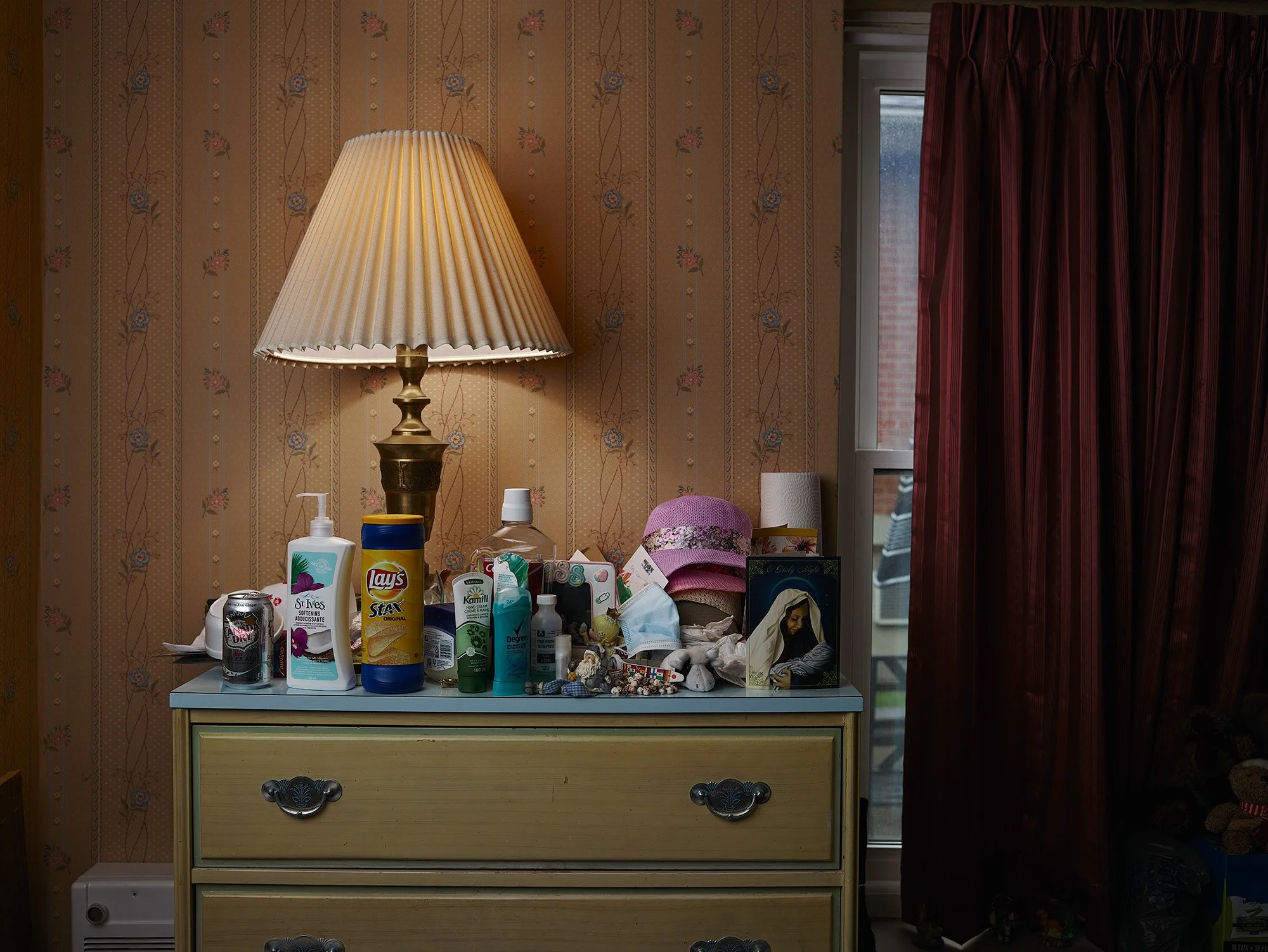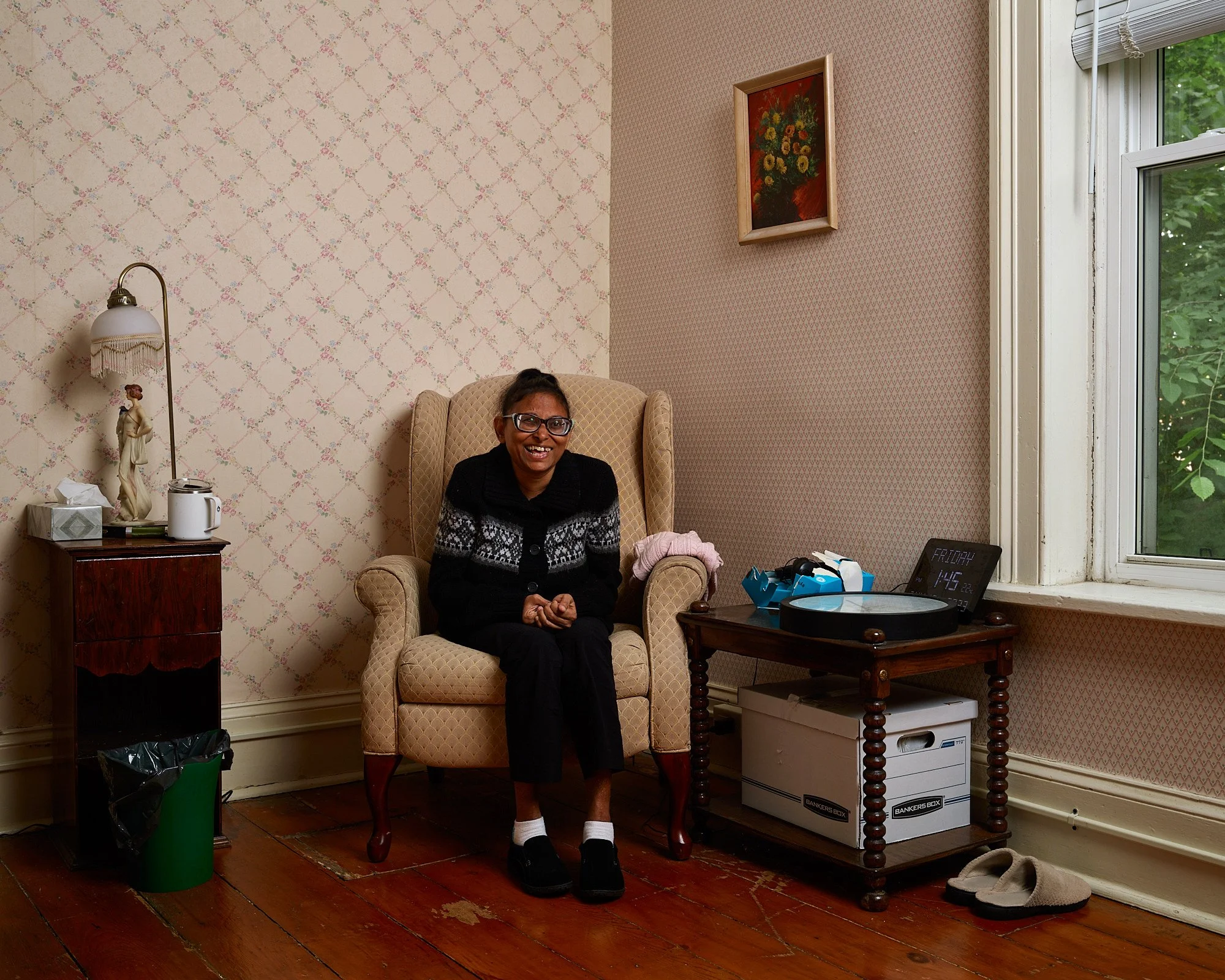
Residents
For fifty years, my wife’s parents have owned and operated a home for ex-psychiatric patients; a community reintegration program run as a house, not an institution. And for the last two years, my wife and I – along with our two small children – have taken over the operations and lived at this home. We make meals for the residents, care for them, and over time, we have become vessels for their anxiety and neuroses. The photographs in this series are my emotional response to our encounters here, and the project has changed shape as I’ve come to know the residents better. I have also gained an enhanced understanding of my wife Leah’s experience of growing up in this home with her family.
The residents featured here are mothers, wives, daughters, brothers, sons and all-around amazing people. Some of them have had multiple careers and raised families. In Rosa’s case, she emigrated from her home country of Nicaragua to Toronto, where she worked in a hospital and raised her two sons. Now, she helps clean the dining room in the home and assists fellow residents with a smile. We talk about family often, and she delights in describing me as a good father (an assessment I obviously welcome).
Barb worked in tele-marketing and loves walking around town; and she pays very special attention to her appearance. When we first moved into the house, Barb and another resident named Kory were becoming annoyed with each other as Barb kept thinking Kory was staring at her. I tried to lighten the mood by saying, “Well, Barb, it’s not Kory’s fault you have such beautiful hair.” To which Barb replied (with a smile), “Well I pay a lot of money for this hair – I want to be a beautiful woman.” I said, “ You are a beautiful woman, Barb!” She liked the compliment and that interaction created a special bond between us. I felt that I understood that she wanted to be seen – as a woman, as a beautiful woman – and I responded to something that is of importance to her through the photograph.
I have stories of this nature with each and every resident that lives in the home. If I could use one concept to describe what I think the residents lack most in their lives, it would be ‘being seen’. Being seen not as someone with a deficiency or someone who is lacking, but someone who is complete. Someone who is whole. The residents are beautiful, complex, interesting and relevant people who struggle; they are not typically thought of as ‘complete’, but they are. Just as we all are.
Through working with my mentors Steven Laurie and Wesley Verhoeve, I now realize that the nature of this project is symbiotic. As a reaction to the circumstance I’d found myself in – which I didn’t ever expect to be in, photography became a way for me to untangle my feelings. And mutually, the residents – essentially my collaborators here – are in a situation they didn’t choose to be in either. Our fates have intertwined, and I endeavour through these images to magnify the complexity and precarity of our collective mental health while building a space for the residents to be seen and feel represented.

Rosa

Rolodex

Rosa

Dresser Detail

Milli

Craft Corner

Donna's Headboard

Donna

Water Cooler with Menu Sign

Barb's Flowers

Barb

Staircase #2

Don

Don's Smokes

Last Supper Needle Point

Kyle

Vanity Desk

Art with Q-Tips

Fire Extinguisher #2

Medicine Cabinet

Sharron

Dinning Room Chair with Name Tag

Loryl

Bed with Jacket

Kory

TV with Croc

Zaheeda

Stained Glass with Shower Chair

Lori

Tissues and Toiletries

Amanda with Spray Bottle

Leah with Laundry

Peter with Dishes

































